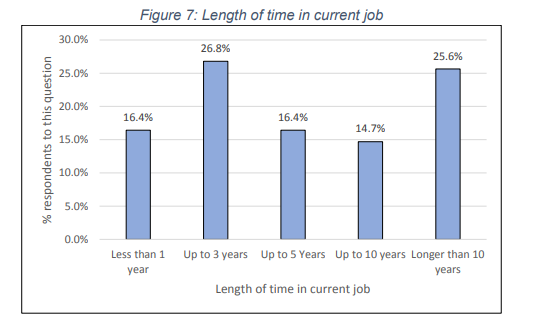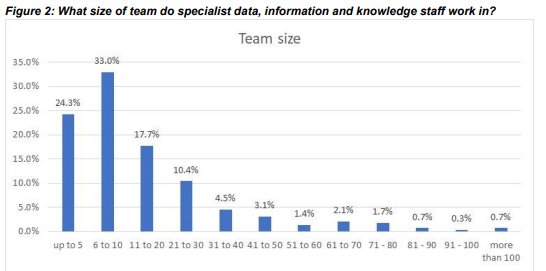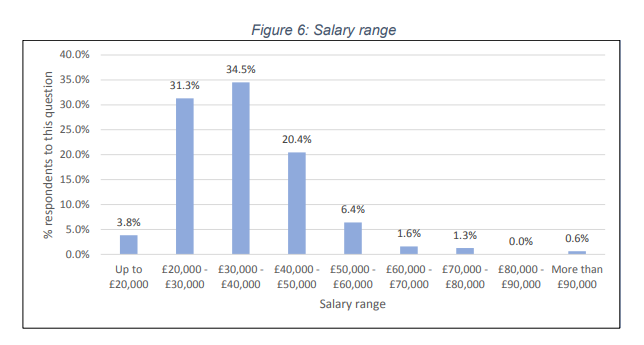Appraisals
skills
career developement
appraisal
Poll
- who knows their job description by heart, or has referred to it this year?
- who keeps a work diary?
- who has a PDP plan?
Background
- It’s Agenda for Change (AfC) appraisal time for many NHS staff
- but this session is not specific to AfC appraisals
The objective
- KIND staff have some of the slowest promotion trajectories of all staff across health and care
- Our Time to Shine
. . .

Small teams

Mid-level

Messy roles
titles <- readr::read_csv("src/kind_titles.csv") |>
dplyr::select(!document) - 3751 total titles analysed
. . .
titles |>
dplyr::arrange(desc(job_n)) |>
dplyr::mutate(ratio = scales::percent(job_n / sum(job_n), 0.1)) |>
dplyr::slice(1:6) |>
knitr::kable()| job_title | job_n | ratio |
|---|---|---|
| senior information analyst | 347 | 9.3% |
| information analyst | 333 | 8.9% |
| principal information analyst | 118 | 3.1% |
| data analyst | 61 | 1.6% |
| data management officer | 43 | 1.1% |
| health intelligence analyst | 39 | 1.0% |
Messy roles
- no standard terminology
- “senior officer” from AfC band 3 - band 8
- too many titles (e.g. 400+ KIND-ish job titles compared to c.85 nursing roles)
- biggest is about 9% of the KIND network (information analyst)
- massively higher qualifications found in KIND roles compared to many other careers
DDaT
- there’s some interesting policy work going on to rationalise careers and titles
- but this is a good way from implementation
Claiming credit
- entirely informally and without an evidence-base: I think many of us are not very good at claiming credit for the work we do
- something about humility and modesty in the analytic temperament?
- Dunning-Kruger?
- social conditioning?
- introversion?
- niche skills in work environment?
- whatever the cause, (hunch) I think we under-rate our own expertise
Tips
- diary / log
- time and task
- I basically OneNote a load of rubbishy bits, and make no effort to sort them until needed
- look at your JD
- look at your KSF dimensions
- look at wider skills frameworks
- “I did x in y, which means z in …”
- “I need to x, which means I need y…”
Open goals
- excessively manual processes
- saved you time? Saved us money!
- compliance
- impact and change
- informal training and support
- management-like activity
SMART
- Specific, Measurable, Achievable, Relevant, and Time-Bound
- conceptually, a horrible mess
- but dead useful for translating vague wants and needs into something more directed